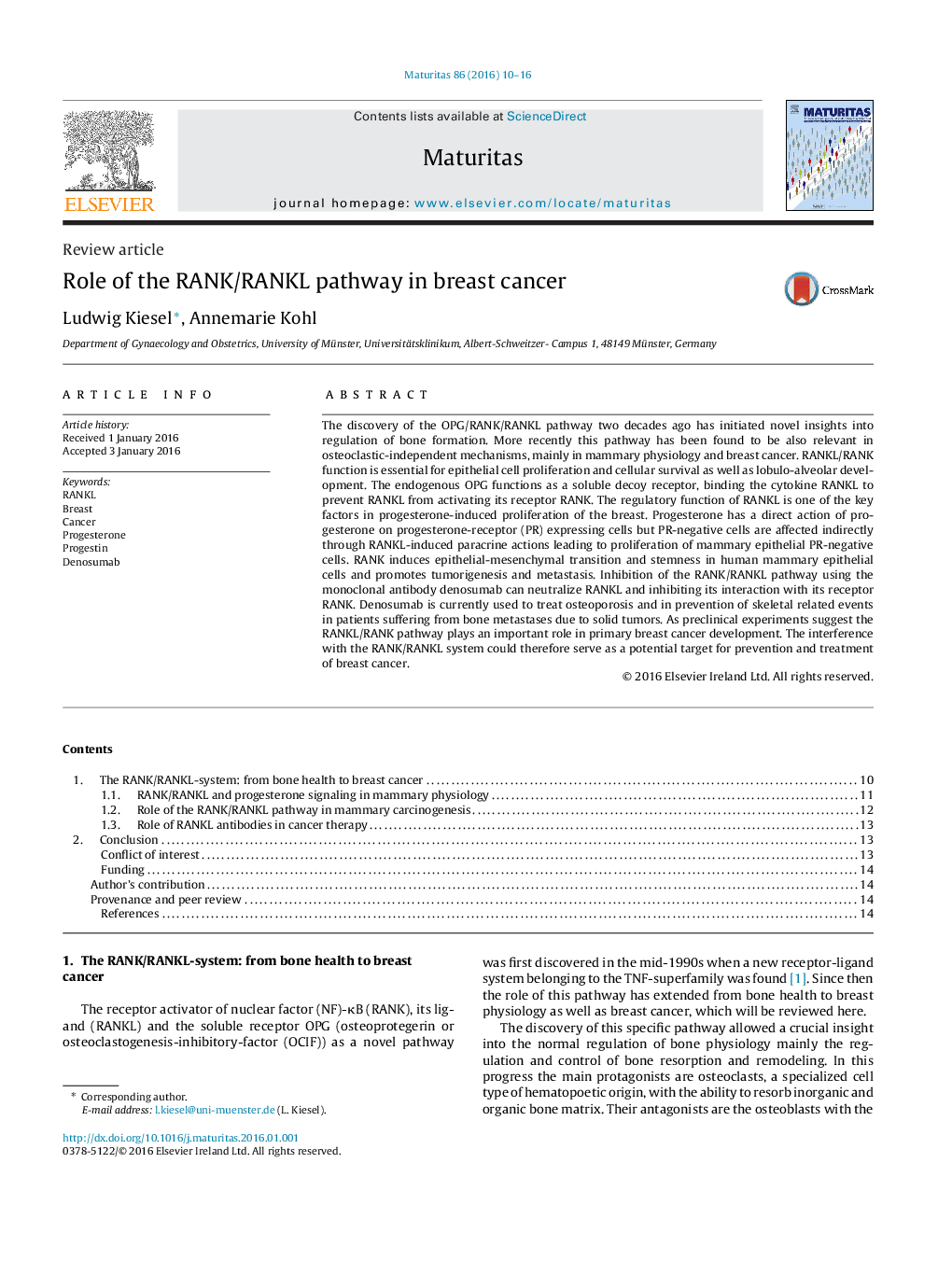| کد مقاله | کد نشریه | سال انتشار | مقاله انگلیسی | نسخه تمام متن |
|---|---|---|---|---|
| 1917037 | 1535301 | 2016 | 7 صفحه PDF | دانلود رایگان |
• The RANK/RANKL pathway has also osteoclast-independent effects, e.g., in the normal breast.
• Progesterone has a direct action of progesterone on progesterone-receptor (PR) expressing cells but PR-negative cells are affected indirectly through RANKL-induced paracrine actions leading to proliferation of mammary epithelial PR-negative cells.
• High levels in RANK expression are commonly observed in hormone receptor negative tumors showing a high initial proliferation index and pathological grade.
• Synthetic progesterone derivates (progestins) may cause stimulation of the RANKL/RANK pathway potentially inducing pre-neoplastic or invasive tumor formation.
The discovery of the OPG/RANK/RANKL pathway two decades ago has initiated novel insights into regulation of bone formation. More recently this pathway has been found to be also relevant in osteoclastic-independent mechanisms, mainly in mammary physiology and breast cancer. RANKL/RANK function is essential for epithelial cell proliferation and cellular survival as well as lobulo-alveolar development. The endogenous OPG functions as a soluble decoy receptor, binding the cytokine RANKL to prevent RANKL from activating its receptor RANK. The regulatory function of RANKL is one of the key factors in progesterone-induced proliferation of the breast. Progesterone has a direct action of progesterone on progesterone-receptor (PR) expressing cells but PR-negative cells are affected indirectly through RANKL-induced paracrine actions leading to proliferation of mammary epithelial PR-negative cells. RANK induces epithelial-mesenchymal transition and stemness in human mammary epithelial cells and promotes tumorigenesis and metastasis. Inhibition of the RANK/RANKL pathway using the monoclonal antibody denosumab can neutralize RANKL and inhibiting its interaction with its receptor RANK. Denosumab is currently used to treat osteoporosis and in prevention of skeletal related events in patients suffering from bone metastases due to solid tumors. As preclinical experiments suggest the RANKL/RANK pathway plays an important role in primary breast cancer development. The interference with the RANK/RANKL system could therefore serve as a potential target for prevention and treatment of breast cancer.
Journal: Maturitas - Volume 86, April 2016, Pages 10–16
